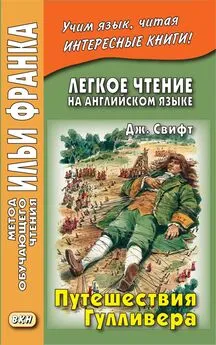The Theatre - Kellerman, Jonathan
- Название:Kellerman, Jonathan
- Автор:
- Жанр:
- Издательство:неизвестно
- Год:неизвестен
- ISBN:нет данных
- Рейтинг:
- Избранное:Добавить в избранное
-
Отзывы:
-
Ваша оценка:
The Theatre - Kellerman, Jonathan краткое содержание
For all its many crimes of passion and politics, Jerusalem has only once before been victimized by a serial killer. Now the elusive psychopath is back, slipping through the fingers of police inspector Daniel Sharavi. And one murderer with a taste for young Arab women can destroy the delicate balance Jerusalem needs to survive.
Kellerman, Jonathan - читать онлайн бесплатно полную версию (весь текст целиком)
Интервал:
Закладка:
Under other circumstances the driver of the Escort would have noticed all this, and more. His feelings for the city had never dimmed and no matter how many times he experienced her sights and sounds and smells, they never ceased to enchant him. But this morning his mind was on other things.
He turned the wheel and swung up Shmuel Ben Adayah. A quick left brought him onto the Mount of Olives Road toward the peak of Mount Scopus. The highest point in the city. The Eye of Jerusalem, where the outrage had taken place.
Flares and metal barriers had been laid across the road. Behind the barriers stood a border policeman-a Druze the driver knew, by the name of Salman Afif. Afif maintained an impassive watch, legs spread and planted firmly, one hand resting on his holstered pistol, the other twirling the ends of enormous black mustaches. When the Escort approached he mentioned for it to halt, came to the open window, and nodded in recognition. After a cursory exchange of greetings, the barriers were pulled aside.
As the Escort passed through, the drivers surveyed the hilltop, examining the vehicles parked along the road: the mobile crime van; the transport van from the Abu Kabir pathology lab; a blue-and-white, its blue blinker still flashing; Afif's jeep; a white Volvo 240 with police plates. The technicians had already arrived, as had uniformed officers-but only two of them. Next to the Volvo stood Deputy Commander Laufer and his driver. But no police spokesman, no press, no sign of the pathologist. Wondering about it, the driver parked at some distance from the others, turned off the engine, and set the hand brake. There was a note pad on the passenger seat.
He grasped it somewhat clumsily in his left hand and got out of the car.
He was a small, dark, neat-looking man, five foot seven, one hundred and forty pounds, thirty-seven years old but appearing ten years younger. He wore simple clothes-short-sleeved white cotton shirt, dark trousers, sandals without socks-and no jewelry except for an inexpensive wristwatch and an incongruously ornate wedding band of gold filigree.
His hair was thick, black, and tightly kinked, trimmed to medium length in the style the Americans called Afro, and topped with a small black kipah sruguh-knitted yarmul-ke-bordered with red roses. The face below the Afro was lean and smooth, skin the color of coffee liberally laced with cream, stretched tightly over a clearly delineated substructure: high, sharp cheekbones, strong nose anchored by flared nostrils, wide lips, full and bowed. Only the upper surface of his left hand was a different color-grayish-white, puckered. and shiny, crisscrossed with scars.
Arched eyebrows created the illusion of perpetual surprise. Deep sockets housed a pair of liquid, almond eyes, the irises a strange shade of golden-brown, the lashes so long they bordered on the womanish. In another context he could have been taken for someone of Latin or Caribbean descent, or perhaps Iberian melded with a robust infusion of Aztec. On at least one occasion he had been mistaken fora light-skinned black man.
His name was Daniel Shalom Sharavi and he was, in fact, a Jew of Yemenite origins. Time, circumstance, and protekzia-fortuitous connections-had made him a policeman. Intelligence and industriousness had raised him to the rank of pakad-chief inspector-in the National Police, Southern District. For most of his career, he'd been a detective. For the last two years he'd specialized in Major Crimes, which, in Jerusalem, rarely referred to the kind of thing that had brought him to Scopus this morning.
He walked toward the activity. The transport attendants sat in their van. The uniformed policemen were talking to an older man in a Civil Guard uniform. Daniel gave him a second look: late sixties to early seventies, thin but powerfully built, with close-cropped white hair and a bristly white mustache. He seemed to be lecturing the policemen, pointing toward a gully off the west side of the road, gesticulating with his hands, moving his lips rapidly.
Laufer stood several yards away, seemingly oblivious to the lecture, smoking and checking his watch. The deputy commander wore a black knit shirt and gray slacks, as if he'd lacked the time to don his uniform. In civilian clothes, bereft of ribbons, he looked pudgier, definitely less impressive. When he saw Daniel approaching, he dropped his cigarette and ground it out in the dirt, then said something to the driver, who walked away. Not waiting for Daniel to reach him, he moved forward, paunch first, in short, brisk steps.
They met midway and shared a minimal handshake.
"Horrible," said Laufer. "Butchery." When he spoke his jowls quivered like empty water bladders. His eyes, Daniel noticed, looked more tired than usual.
Laufer's hand fumbled in his shirt pocket and drew out a pack of cigarettes. English Ovals. Souvenirs from the latest London trip, no doubt. He lit a cigarette and blew the smoke out of his nose in twin drafts.
"Butchery," he said again.
Daniel cocked his head toward the Hagah man.
"He the one who found it?"
Laufer nodded. "Schlesinger, Yaakov."
"This part of his regular patrol?"
"Yes. From Old Hadassah, around the university, down past the Amelia Catherine, and back. Back and forth, five times a night, six nights a week."
"A lot of walking for someone his age."
"He's a tough one. Former palmahi. Claims he doesn't need much sleep."
"How many times had he been through when he discovered it?"
"Four. This was the last pass. Back up the road and then he picks up his car on Sderot Churchill and drives home. To French Hill."
"Does he log?"
"At the end, in the car. Unless he finds something out of the ordinary." Laufer smiled bitterly.
"So we may be able to pinpoint when it was dumped."
"Depending on how seriously you take him."
"Any reason not to?"
"At his age?" said Laufer. "He says he's certain it wasn't there before, but who knows? He may be trying to avoid looking sloppy."
Daniel looked a the old man. He'd stopped lecturing and stood ruler-straight between the policemen. Wearing the M-l as if it were part of him. Uniform pressedaand creased. The old-guard type. Nothing sloppy about him.
Turning back to Laufer, he lifted his note pad with his bad hand, flipped it open, and pulled out his pen.
"What time does he say he found it?" he asked.
"Five forty-five."
A full hour before he'd been called. He lowered the pen, looked at Laufer questioningly.
"I wanted things quiet," said the deputy commander matter-of-factly. Without apology. "At least until we can put this in context. No press, no statements, a minimum of personnel. And no needless chatter with any personnel not on the investigating team."
"I see," said Daniel. "Dr. Levi's been here?"
"Been and gone. He'll do the necropsy this afternoon and call you."
The deputy commander took a deep drag on his cigarette, got a shred of tobacco on his lip and spat it out.
"Do you think he's back?" he asked. "Our gray friend?"
It was a premature question, thought Daniel. Even for one who had made his mark in administration.
"Does the evidence fit?" he asked.
Laufer's expression made light of the question. "The site fits, doesn't it? Weren't the others found right around here?"
"One of them-Marcovici. Farther down. In the woodlands."
"And the others?"
"Two in Sheikh Jarrah, the fourth-"
"Exactly." Laufer cut him off. "All within a half-kilometer radius. Perhaps the bastard has a thing for this area. Something psychological."
"Perhaps," said Daniel. "What about the wounds?"
"Go down there and look for yourself," said the deputy commander.
He turned away, smoking and coughing. Daniel left him and climbed nimbly down into the gully. Two technicians, one male, one female, were working near the body, which was covered by a white sheet.
"Good morning, Pakad Sharavi," the man said with mock deference. He held a test tube up to the sunlight, shook it gently, and placed it in an open evidence case.
"Steinfeld," acknowledged Daniel. He ran his eyes over the site. Searching for revelations, seeing only the gray of stone, the dun of soil. Torsos of olive trees twisting through the dust, their tops shimmering silver-green. A kilometer of sloping rocky field; beyond it the deep, narrow valley of Wadi el Joz. Sheikh Jarrah, with its jumble of alleys and vanilla-colored houses. Flashes of turquoise: wrought-iron grills painted in the hue the Arabs believed would repel evil spirits. The towers and steeples of the American colony meshing with tangles of television antennas.
No blood spatter, no trail of crushed foliage, no bits of clothing adhering conveniently to jutting tree limbs. No geographical confession. Just a white form lying under a tree. Isolated, ovoid, out of place. Like an egg dropped out of the sky by some giant, careless bird.
"Did Dr. Levi have anything to say after his examination?" he asked.
"Clucked his tongue a lot." Steinfeld picked up another test tube, examined it, put it down.
Daniel noticed several plaster casts in the case and asked, "Any clear footprints?"
"Just those of the Hagah man," the technician said disgustedly. "If there were others, he obliterated them. He also threw up. Over there." He pointed to a dry, whitening patch a meter to the left of the sheet. "Missed the body. Good aim, eh?"
The woman was a new hire named Avital. She knelt in the dirt, taking samples of leaves, twigs, and dung, scooping them into plastic bags, working quickly and silently with an intent expression on her face. When she'd sealed the bags she looked up and grimaced. "You don't want to look at this one, adoni.'
"How true," said Daniel. He got down on his knees and lifted up the sheet.
The face had been left intact. It lay tilted in an unnatural position, staring up at him with half-closed, clouded eyes. Horribly pretty, like a doll's head fastened to the carnage below. A young face, dusky, roundish, lightly sprinkled with pimples on forehead and chin, wavy black hair, long and shining.
How old could she have been? he thought. Fifteen, maybe sixteen? A hot anger kindled in his abdomen. Avital was staring at him and he realized he was clenching his fists. Quickly he relaxed them, felt the fingertips tingle.
"Was the hair like this when you found it?" he asked.
"Like what?" asked Steinfeld.
"Clean. Combed."
The technicians looked at each other.
"Yes," said Avital.
Steinfeld nodded and paused expectantly, as if waiting for another question. When none came he shrugged and went back to work.
Daniel leaned in closer and sniffed. The stench of death had begun to issue from the corpse but through it he made out the clean, sweet scent of soap. Someone had washed her.
He raised his head and continued examining the face. The mouth hung slightly agape, revealing a hint of white but widely spaced teeth. The lower ones were crowded and chipped. An upper canine was missing. Not a rich girl. Pierced ears but no earrings. No tribal tattoos, scars, birthmarks, or blemishes.
"Any identification?"
"Life should be so easy," said Steinfeld.
Daniel stared a bit longer, then ceased his inspection of individual features. Shifting his perspective, he regarded the face as an entity and searched for ethnic characteristics. She appeared Oriental, but that meant little. It was a rare Jerusalem face that told a definite ethnic story-Arab, Ashkenazi, Druze, Bukharan, Armenian. Each had its prototype, but the overlap was substantial. He'd seen too many blond, blue-eyed Arabs, too many swarthy Germans to be confident about racial guesses. Still, it would have been nice to find something, somewhere to start
Читать дальшеИнтервал:
Закладка:



![Джеймс Купер - Пионеры, или У истоков Саскуиханны [The Pioneers, or The sources of the Susquehannah]](/books/1066142/dzhejms-kuper-pionery-ili-u-istokov-saskuihanny-t.webp)





